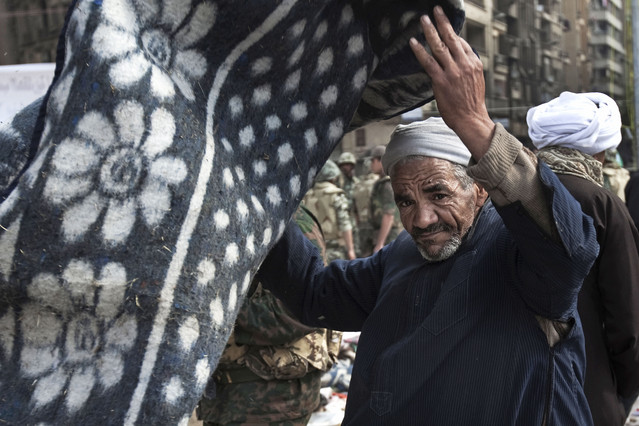NEW YORK: The Obama administration’s decision to seek a new way forward in United States-Burma relations recognizes that decades of trying to isolate Burma (Myanmar) in order to change the behavior of its government have achieved little. With Burma’s ruling generals preparing to hold elections later this year – for the first time since 1990 – it is time to try something different.
Attempting to engage one of the world’s most authoritarian governments will not be easy. There is no evidence to indicate that Burma’s leaders will respond positively to the Obama administration’s central message, which calls for releasing the estimated 2,100 political prisoners (including Daw Aung San Suu Kyi), engaging in genuine dialogue with the opposition, and allowing fair and inclusive elections. In fact, the recently enacted electoral laws, which have been met with international condemnation, already point to a process that lacks credibility.
This past fall, we convened a task force under the auspices of the Asia Society to consider how the US can best pursue a path of engagement with Burma. We concluded that the US must ensure that its policies do not inadvertently support or encourage authoritarian and corrupt elements in Burmese society. At the same time, if the US sets the bar too high at the outset, it will deny itself an effective role in helping to move Burma away from authoritarian rule and into the world community.
During this period of uncertainty, we recommend framing US policy toward Burma on the basis of changes taking place in the country, using both engagement and sanctions to encourage reform. The Obama administration’s decision to maintain trade and investment sanctions on Burma in the absence of meaningful change, particularly with regard to the Burmese government’s intolerance of political opposition, is correct.
Yet there are other measures that should be pursued now. The US should engage not only with Burma’s leaders, but also with a wide range of groups inside the country to encourage the dialogue necessary to bring about national reconciliation of the military, democracy groups, and non-Burmese nationalities. The removal by the US of some noneconomic sanctions designed to restrict official bilateral interaction is welcome, and an even greater relaxation in communications, through both official and unofficial channels, should be implemented. Expanding such channels, especially during a period of potential political change, will strengthen US leverage.
To reach the Burmese people directly, the US should continue to develop and scale up assistance programs, while preserving cross-border assistance. Assistance to non-governmental organizations should be expanded, and US assistance also should be targeted toward small farmers and small- and medium-sized businesses. Educational exchanges under the Fulbright and Humphrey Scholar programs and cultural outreach activities should be increased. These programs produce powerful agents for community development in Burma, and can significantly improve the prospects for better governance.
US policy should shift to a more robust phase if Burmese leaders begin to relax political restrictions, institute economic reforms, and advance human rights. If there is no movement on these fronts, there will likely be pressure in the US for tightening sanctions. If there is no recourse but to pursue stronger sanctions, the US should coordinate with others, including the European Union and ASEAN, to impose targeted financial and banking measures to ensure that military leaders and their associates cannot evade the impact of what otherwise would be less-effective unilateral sanctions.
If a different scenario emerges, it should open the way for a much more active US role in assisting with capacity building, governance training, and international efforts to encourage economic reforms. One priority should be the development of an appropriate mechanism for ensuring that revenues from the sale of natural gas are properly accounted for, repatriated, and allocated to meet urgent national needs.
In adjusting its policy toward Burma, the US must face reality with a clear vision of what its foreign policy can achieve. US influence in Burma is unlikely to outweigh that of increasingly powerful Asian neighbors. Therefore, the US should make collaboration with other key stakeholders, particularly ASEAN, the United Nations, and Burma’s neighbors – including China, India and Japan – the centerpiece of its policy.
In every respect, conditions in Burma are among the direst of any country in the world, and it will take decades, if not generations, to reverse current downward trends and create a foundation for a sustainable and viable democratic government and a prosperous society. The US needs to position itself to respond effectively and flexibly to the twists and turns that a potential transition in Burma may take over time, with an eye toward pressing the Burmese leadership to move in positive directions.
Wesley K. Clark, a former NATO Supreme Commander, is a Senior Fellow at UCLA’s Burkle Center for International Relations. Henrietta H. Fore is a former Administrator of USAID. Both are co-chairs of the Asia Society-sponsored Task Force on US Policy toward Burma/Myanmar. Suzanne DiMaggio, Director of Policy Studies at the Asia Society, is Project Director. This commentary is published by Daily News Egypt in collaboration with Project Syndicate, www.project-syndicate.org.

